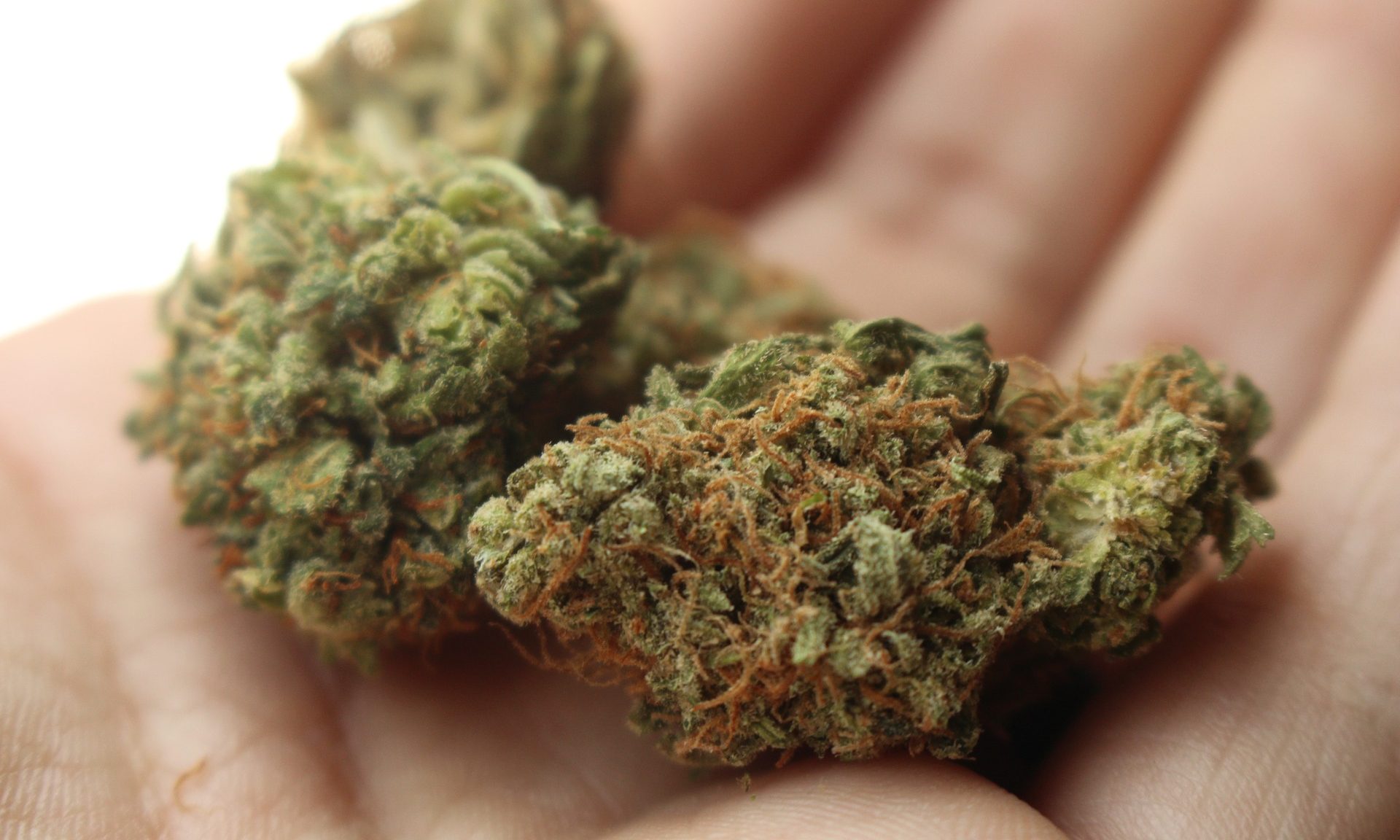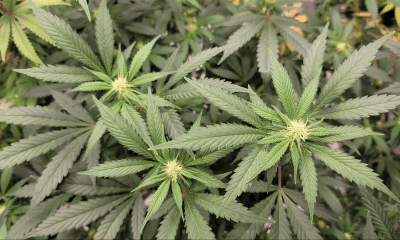Politics
Marijuana Legalization Bills Died In Three States This Week As Others Move Forward

Lawmakers in states across the country are taking up marijuana reform measures this year after a November election in which voters passed every state-level drug reform initiative put before them. But in three states—Maryland, Hawaii and Wyoming, bills to end cannabis prohibition this year have died in recent days as key legislative deadlines passed.
Advocates said the failure of lawmakers in Hawaii, Maryland and Wyoming to move forward on the proposals means the harms of criminalization will continue to fall disproportionately on Black and brown communities in those states for at least another year, even as a majority of voters support legalization.
“We will continue to see racially disproportionate enforcement throughout our state,” Luke Jones, director of Maryland NORML, told Marijuana Moment, “resulting in tens-of-thousands of avoidable police encounters and more arrest records we will pay to expunge next year.”
Lawmakers in other states, meanwhile, including New York, Kansas, North Dakota, Rhode Island, New Mexico, Delaware and others, are still pursuing some form of cannabis reform this year. And in Virginia, the legislature last month sent a legalization bill to the governor’s desk.
Broader drug reform efforts also got underway this year in California, Connecticut, Florida, Kansas, Missouri, New York, Rhode Island, Washington State and Virginia, where lawmakers have introduced a variety of bills during the 2021 session—some dealing with psychedelics but others that call for comprehensive decriminalization.
At the national level, meanwhile, lawmakers recently reintroduced a proposal to allow state-legal marijuana businesses access to banking services, with legislation to end federal cannabis prohibition expected to be introduced soon.
For now, here’s a look at the recent death of legalization bills in three states.
Maryland
Two separate marijuana legalization bills in Maryland expired this week, one backed by top leaders in the state Senate and a competing measure introduced by Del. Jazz Lewis (D) in the House. Both failed to pass their respective chambers before a legislative deadline on Monday.
“Neither adult use legalization bill introduced in Maryland has advanced ahead of today’s crossover deadline, meaning the legislature is not ready to move forward with legalization this year,” Olivia Naugle, legislative analyst for the advocacy group Marijuana Policy Project (MPP), told Marijuana Moment. “However, bill sponsors are working on amendments that could be considered after crossover to set the stage for equitable legalization next year.”
Lewis, whose HB 32 was heard in the House Judiciary Committee last month but never voted on, told Cannabis Wire that the goal this session will now be “to move forward on the regulatory infrastructure so that there is one less barrier next year.”
Lewis proposed a number of amendments to his bill at the hearing with the aim of aligning the measure with the competing Senate bill, SB 708, which was filed with the support of the Senate president and other legislative leaders.
Meanwhile, the Senate Finance committee heard SB 708 but took no action on the measure at a meeting earlier this month. The bill’s lead sponsor, Sen. Brian Feldman (D), framed the hearing as an opportunity to discuss provisions of the legislation and gauge the likelihood of its success.
“I wanted to get a little feedback from the committee,” he told the panel. “I didn’t have a good take of where the committee is and where the committee’s concerns are.”
The latest versions of each proposal would legalize possession of up to four ounces of marijuana for adults 21 and older as well as home cultivation for personal use. Individuals with past convictions for low-level cannabis activity would see those records expunged, and people currently incarcerated for cannabis crimes would be resentenced or released.
Lewis’s proposal put a stronger focus on targeted community reinvestment than the Senate bill, for example by proposing that some tax revenue from the legal industry fund the state’s historically Black colleges and universities. HB 13 became the preferred bill among social and racial equity advocates, including the chair of Maryland’s Legislative Black Caucus, Del. Darryl Barnes (D).
Luke Jones, director of Maryland NORML, called it “a real tragedy” that legislators missed the opportunity to end marijuana prohibition this year.
“We will continue to see racially disproportionate enforcement throughout our state, resulting in tens-of-thousands of avoidable police encounters and more arrest records we will pay to expunge next year,” Jones told Marijuana Moment. “Our next steps are to invite legislators to attend training sessions on issues of persistent concern, such as non-commercial home cultivation, traffic safety, protecting children, and the role of county and local government officials under a new approach to public safety.”
A poll released earlier this month found that two-thirds (67 percent) of Marylanders support legalizing cannabis, with just 28 percent opposed. Gov. Larry Hogan (R), however, has remained lukewarm on the policy change. In mid-2018 he signed a bill to expand the state’s medical marijuana system and said full legalization was “worth taking a look at,” but last May he vetoed a bill that would’ve shielded people with low-level cannabis convictions from having their records publicized on a state database.
While the legalization bills are dead, there is still hope for some marijuana reform in Maryland this year. The House last month passed HB 324, which would expand the amount of marijuana decriminalized under state law from 10 grams to one ounce. Penalties for having less than that amount would be punishable by a fine of up to $100, with subsequent violations leading to fines of up to $500 and a referral to drug education and a substance use disorder screening. That bill is currently in the Senate Judicial Proceedings Committee, and could potentially be a vehicle for the amendments that MPP”s Naugle said could “set the stage for equitable legalization next year.”
—
Marijuana Moment is already tracking more than 900 cannabis, psychedelics and drug policy bills in state legislatures and Congress this year. Patreon supporters pledging at least $25/month get access to our interactive maps, charts and hearing calendar so they don’t miss any developments.
![]()
Learn more about our marijuana bill tracker and become a supporter on Patreon to get access.
—
Hawaii
A Senate-approved bill to legalize marijuana in Hawaii fell short last week when it failed to proceed past a House committee by a March 18 deadline. Separate legislation to expand the state’s existing decriminalization threshold from three grams to 30 grams of cannabis also failed to advance in the House this session after winning approval of the Senate.
Both measures died in the House Committee on Health, Human Services and Homelessness, chaired by Rep. Ryan Yamane (D), who did not call either bill for a hearing.
“Chair Ryan Yamane exercised his pocket veto, which wasn’t surprising given his poor record on cannabis reform,” Nikos Leverenz, board president for the Drug Policy Forum of Hawaii (DPFH), told Marijuana Moment.
Yamane previously opposed Hawaii’s decriminalization law, which replaced criminal penalties with a $130 fine, and in 2015 voted against allowing storefront dispensaries in the state medical program.
Even if the legalization bill had cleared the Senate panel, it faced another difficult hurdle in the House Judiciary and Hawaiian Affairs Committee. Chairman Mark Nakashima (D) signaled earlier this month that he might not even hold a hearing on the proposal, saying, “I really think we need to get the medical marijuana program up and running in a much more healthy way before we’re ready for any kind of legalization.
Contacted by Marijuana Moment about those remarks, Nakashima replied that the bill “will have to be considered in the Health Committee before I will have jurisdiction”—a step that never happened.
Legalization advocates were also concerned about Gov. David Ige (D), who recently declined to say whether he would sign or veto a legalization bill if it arrived on his desk. Ige also waffled on the state’s existing decriminalization law, which eventually took effect without his signature.
Wyoming
Two cannabis bills that advanced through their initial committee votes in the House will not move forward this session after the full chamber declined to take them up.
Lawmakers had introduced HB 209, which would have legalized and regulated commercial marijuana, and HB 82, which would have required the state to study the possible creation of a medical marijuana program. Neither measure was considered by the full House.
The adult-use legalization legislation was passed on a 6–3 vote earlier this month by the Judiciary Committee, whose Republican chair, Rep. Jared Olsen, is the bill’s lead sponsor. It would allow adults 21 and older to purchase and possess up to three ounces of marijuana and cultivate up to 12 mature plants for personal use.
The measure, which is also cosponsored by the House speaker and other top GOP lawmakers, earned testimony from state agencies and the members public—including former U.S. senator and Rhode Island Gov. Lincoln Chafee, now a Wyoming resident.
A former Wyoming lawmaker gave an emotional testimony in favor of the bill, explaining how his diagnosis of multiple sclerosis cost him his career because, even with the prescription medications he was administered, he did not have the ability to continue his work.
Olsen, who cited surveys showing majority public support for the policy change, said during the hearing that he expected Wyoming voters to take the lead on ending marijuana prohibition if the lawmakers failed to act.
If a voter-led legalization initiative were to become law, “it means that the legislative process doesn’t design the regulation of marijuana,” he said. “Instead, the public by ballot initiative, which may be a lot more simplistic, decides what that will look like.”
The medical cannabis study bill also cleared the Judiciary panel earlier this month only to die on the House floor without a vote.
Marijuana Banking Bill Reintroduced In Senate, With Nearly A Third Of The Chamber Signed On
















